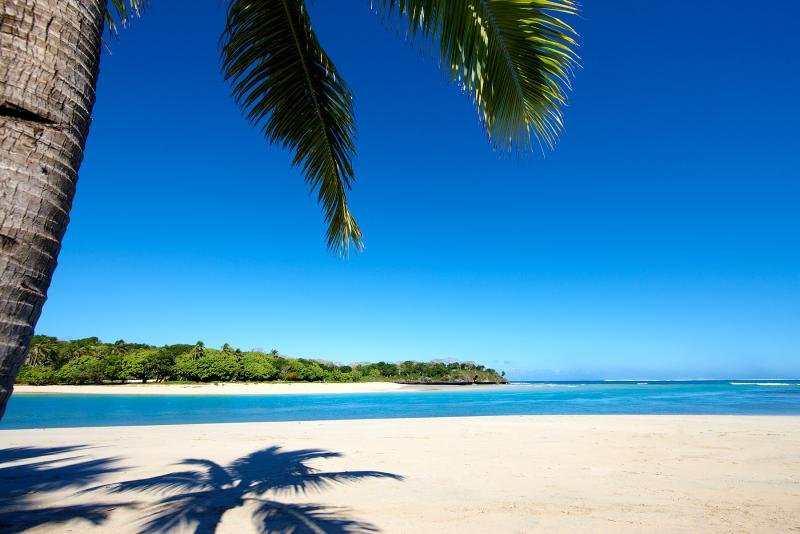Understanding Fijian Hospitality
In Fijian culture, hospitality is more than just a courteous welcome; it is a fundamental aspect of community life. Fijians take immense pride in their ability to host guests, often going to great lengths to ensure that visitors feel at home. This hospitality is deeply rooted in the cultural norms of Fiji, where sharing food and drink is seen as a sign of respect and generosity. From the moment one arrives in a Fijian village, the warmth of the people is palpable. Traditional practices such as the ‘sevusevu’ ceremony, where guests are presented with kava, set the stage for a communal experience centered around food and drink. In many ways, the emphasis on hospitality in Fiji mirrors practices in New Zealand, particularly among Māori communities, where sharing meals is also a way to strengthen social bonds. Both cultures recognize that food is not just sustenance but a pathway to connection, storytelling, and community building. If you wish to learn more about this vibrant hospitality culture, visit Fiji Islands.The Role of Food in Fijian Communities
Food holds a special place in Fijian communities, serving as a medium for expressing love, respect, and welcome. Traditional Fijian meals often include staples such as taro, cassava, and fish, prepared in ways that highlight the unique flavors of the islands. Sharing meals is an integral practice in Fiji, often involving large communal gatherings where everyone partakes in the feast. This act of sharing is not merely about the food itself but about the stories, laughter, and connections that come with it. In New Zealand, this is reflected in the Māori tradition of ‘hangi,’ where food is cooked in an underground oven and shared among participants. Both cultures understand that food fosters communal ties and strengthens relationships. Emphasizing the importance of food, Fijians often invite guests to partake in their meals, as it fosters a sense of belonging. This practice transcends mere nourishment and becomes an essential aspect of cultural identity. To explore more about Fiji’s culinary delights, visit Fiji Islands.Communal Gatherings and Celebrations
Communal gatherings in Fiji are often centered around food and drink, marking significant life events such as weddings, birthdays, and festivals. These gatherings serve as opportunities for family and friends to come together, celebrate, and share meals that reflect the abundance of the land and sea. The preparation of food often involves the entire community, with everyone contributing their skills and resources, reinforcing social bonds and collective identity. In New Zealand, similar communal practices can be observed during significant cultural celebrations like Waitangi Day or Matariki, where sharing food is a fundamental aspect of the festivities. Both cultures recognize that such gatherings strengthen community ties and cultural identity. The practice of sharing meals during these events creates a sense of unity and belonging, allowing participants to honor their heritage while enjoying each other’s company. To learn more about the cultural significance of communal meals in Fiji, visit Fiji Islands.Kava: The Drink of Hospitality
Kava, a traditional drink made from the roots of the kava plant, plays a crucial role in Fijian hospitality. It is often served during welcoming ceremonies and social gatherings, symbolizing friendship and respect. The preparation and sharing of kava is a ritualistic process that involves the community, reinforcing social bonds. Guests are invited to partake in this ceremonial drink, often accompanied by traditional songs and dances, creating a vibrant atmosphere of togetherness. In New Zealand, the concept of sharing a drink resonates with the Māori tradition of ‘kai,’ which emphasizes the importance of sharing food and drink as a way to strengthen relationships. Both cultures understand that sharing kava or any beverage is more than just a social act; it is a gesture of inclusivity and connection. For those interested in understanding the cultural significance of kava, visit Fiji Islands.The Symbolism of Sharing Meals
In Fijian culture, sharing meals carries profound symbolism. It represents unity, respect, and the nurturing of relationships. When a Fijian family invites guests for a meal, they are not just offering food; they are extending an invitation to be part of their family, even if just for a short time. This cultural norm emphasizes the importance of community and connection, where meals serve as a medium for storytelling and sharing experiences. In New Zealand, the Māori concept of ‘manaakitanga,’ which encompasses hospitality, kindness, and respect for others, aligns closely with this Fijian practice. Both cultures recognize that sharing meals can create lasting bonds and foster understanding among diverse groups. The act of eating together transcends cultural differences and highlights the universal need for connection. To delve deeper into the symbolism of sharing meals in Fiji, visit Fiji Islands.Food as a Cultural Identity
Food is a vital expression of cultural identity in Fiji. Traditional dishes and cooking methods reflect the unique history, geography, and resources of the islands. Fijians take pride in their culinary heritage, which includes a mix of indigenous ingredients and techniques passed down through generations. Meals are often prepared with care and presented beautifully, showcasing the importance of aesthetics in Fijian culture. Similarly, in New Zealand, Māori cuisine emphasizes the use of local ingredients and traditional cooking methods, showcasing the connection to the land and sea. The importance of cultural identity through food is evident in both Fijian and Māori communities, where traditional dishes serve as a reminder of heritage and belonging. Engaging with the culinary practices of Fiji can deepen one’s appreciation for its rich culture. For a closer look at Fijian culinary identity, visit Fiji Islands.Building Bridges Through Food and Drink
Fijian hospitality exemplifies how food and drink can build bridges between cultures. When Fijians share their meals with visitors, they are not only offering nourishment but also an opportunity for cultural exchange. This practice invites guests to engage with Fijian traditions, fostering mutual respect and understanding. The communal aspect of sharing food allows for conversations, stories, and experiences that enrich both hosts and guests. In New Zealand, similar opportunities arise during cultural festivals and events, where sharing food can break down barriers and promote understanding among diverse communities. Both cultures recognize that food is a universal language that can foster connections across cultural divides. Engaging with Fijian hospitality through food and drink can provide valuable insights into the heart of Fijian culture. To explore more about the cultural significance of food in Fiji, visit Fiji Islands.FAQs
What is Fijian hospitality?
Fijian hospitality is a cultural norm that emphasizes warmth, generosity, and community spirit. It is characterized by the welcoming of guests and the sharing of food and drink, reflecting the deep-rooted belief that sharing sustains relationships and strengthens community bonds.
Why is sharing food important in Fijian culture?
In Fijian culture, sharing food signifies respect and kinship. It is a way to show appreciation for guests and to build connections within the community. Meals are often communal events where stories, laughter, and traditions are shared, fostering a sense of belonging.
What are some traditional Fijian dishes served during gatherings?
Traditional Fijian dishes include kokoda (marinated fish), palusami (taro leaves filled with coconut cream), and lovo (food cooked in an underground oven). These dishes reflect the rich agricultural and marine resources of Fiji and are often prepared for communal feasts to celebrate special occasions.
How does sharing drink play a role in Fijian hospitality?
Sharing a drink, particularly kava, is an integral part of Fijian hospitality. Kava ceremonies are deeply symbolic, representing friendship and respect among participants. The act of preparing and sharing kava fosters dialogue and strengthens social ties within the community.
Are there any customs associated with food sharing in Fiji?
Yes, there are several customs associated with food sharing in Fiji. It is customary for the host to serve guests first, and it is considered polite to accept food and drink offered by others. Additionally, sharing food often involves rituals that honor ancestors and express gratitude for the harvest.
How do Fijian cultural norms influence dining etiquette?
Fijian cultural norms dictate that meals are often shared in a communal setting, with everyone eating from the same pot or plate. It is important to show respect by waiting for the eldest person to start eating first and to engage in conversation while dining, highlighting the social aspect of sharing food.
What impact does Fijian hospitality have on tourism?
Fijian hospitality significantly enhances the tourism experience by providing visitors with authentic cultural interactions. Tourists are often invited to participate in communal meals and kava ceremonies, allowing them to engage with local traditions and understand the importance of food and drink in Fijian communities.
References
- Fiji Islands Official Tourism Website – This site provides insights into Fijian culture, including the significance of food and drink in local communities.
- Fijian Culture: Food and Community – An article discussing how food and shared meals play a critical role in Fijian social structures and community bonding.
- The Importance of Food in Fijian Culture – A blog post that explores traditional Fijian cuisine and the communal aspect of dining.
- Fijian Hospitality and Its Significance to Our Culture – An article that outlines the essential role of hospitality and food-sharing in Fijian tradition.
- Why Sharing Food is Central to Fijian Culture – A report that highlights the cultural practices surrounding food sharing in Fijian communities.







